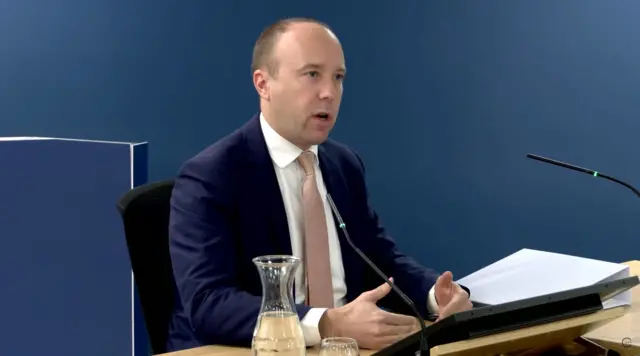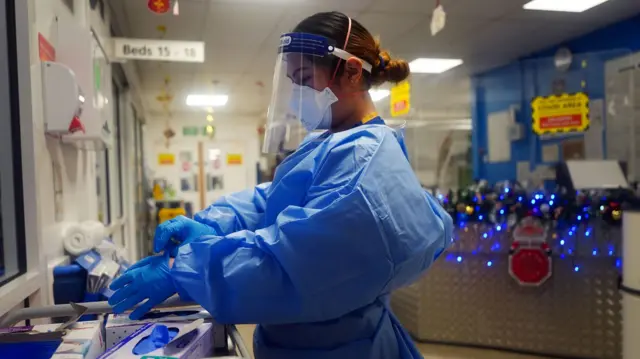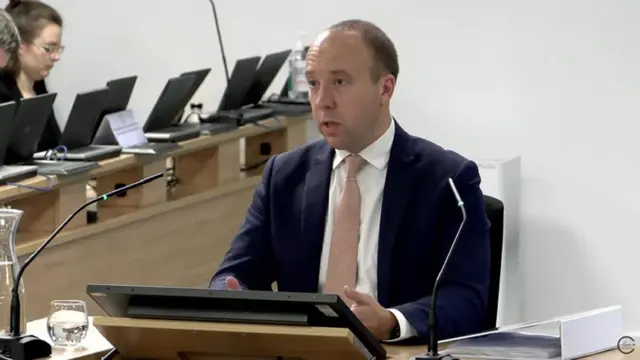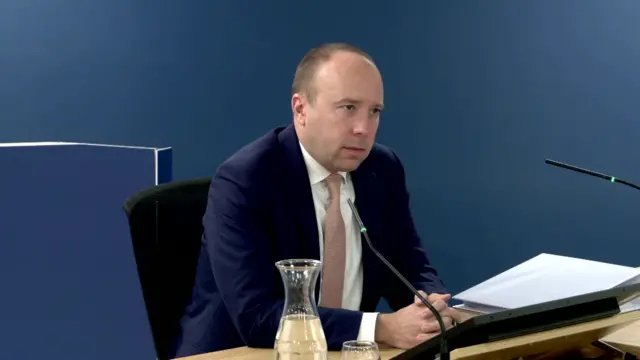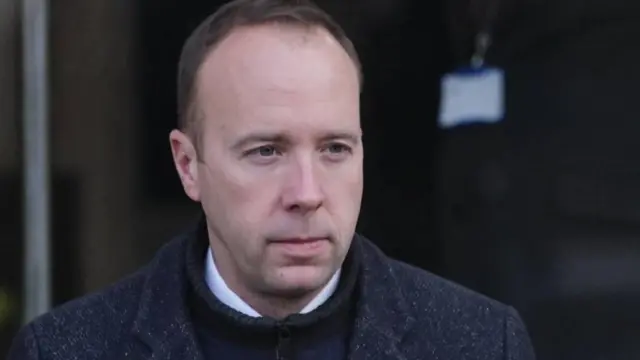Hancock was opposed to national guidance on who got ICU carepublished at 11:56 GMT 21 November 2024
The inquiry has resumed after the morning break with questions for Hancock around national guidance and a "tool" for situations where ICUs become overwhelmed.
Evidence submitted to the inquiry by former NHS England boss Simon Stevens said that Hancock wanted to decide "who should live and who should die" if hospitals became overwhelmed by coronavirus patients during the pandemic.
Hancock underlines multiple times that he believed those decisions - on which patients should get ICU treatment - should be taken locally.
He adds it would be "very hard" to write something that would "improve on an individual clinician making a decision... on how to save lives".
He tells the inquiry he had not really considered the "wider controversy" that such England-wide guidance might provoke.
